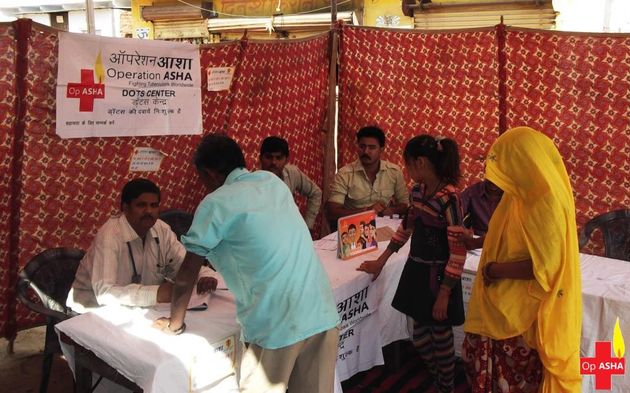The video shows how Operation Asha uses a mix of high-tech and low-tech innovations to advance Directly Observed Therapy (DOT) for TB as recommended by the World Health Organization. DOT is a TB treatment method that helps patients adhere to their medication regimen by requiring the presence of a community health provider when a patient takes their medication. By sending community health providers into remote communities where people have less access to clinics and hospitals, Operation ASHA takes treatment to “the last mile.” Operation ASHA also uses a biometric device (a fingerprint scanning technology) to track patient drug compliance during DOT and avoid false reporting of treatment adherence. In the places where Operation ASHA works, the organization has increased detection of TB and patient treatment compliance and exceeded World Health Organization goals for curing patients. “I feel very lucky to serve these people through Operation ASHA,” says Sabetah. “When they are free of TB, I feel so happy for them and myself … I feel connected as a family to the people whom I serve.”
The second video, “Patient Profile: Prakesh” shows how Prakesh, a farmer and manual laborer has had to curtail his activities and suffer a drastic loss of income because of his tuberculosis. Prakesh tells the interviewers that apart from his children and family, Kabaddi, a contact sport popular in his state that involves running while holding one’s breath, brings him the most joy. He was once the best player in his village, but his disease has made him too weak to play. Prakesh says that once he is cured, “I will play again.”
Both of these videos were created by Katie Jordan, Jacob Rosenberg, and Pranav Haravu, undergraduate students from the University of North Carolina at Chapel Hill, in partnership with the International Partnership for Innovative Healthcare Delivery (IPIHD) and with support from the Robertson Scholars Leadership Program.
Operation ASHA is an IPIHD Network Innovator and part of the Social Entrepreneurship Accelerator at Duke (SEAD), a USAID-funded Development Lab for scaling innovations in global health. Learn more about Operation ASHA’s work to eradicate TB at www.opasha.org.



